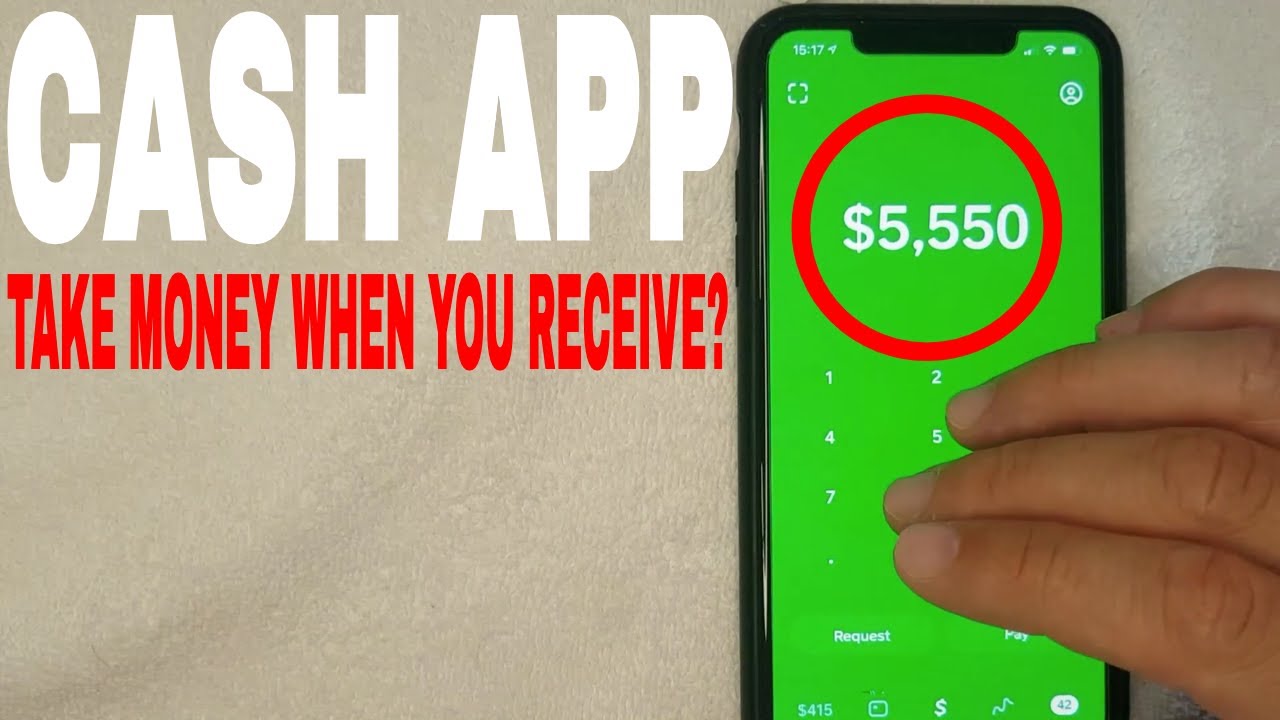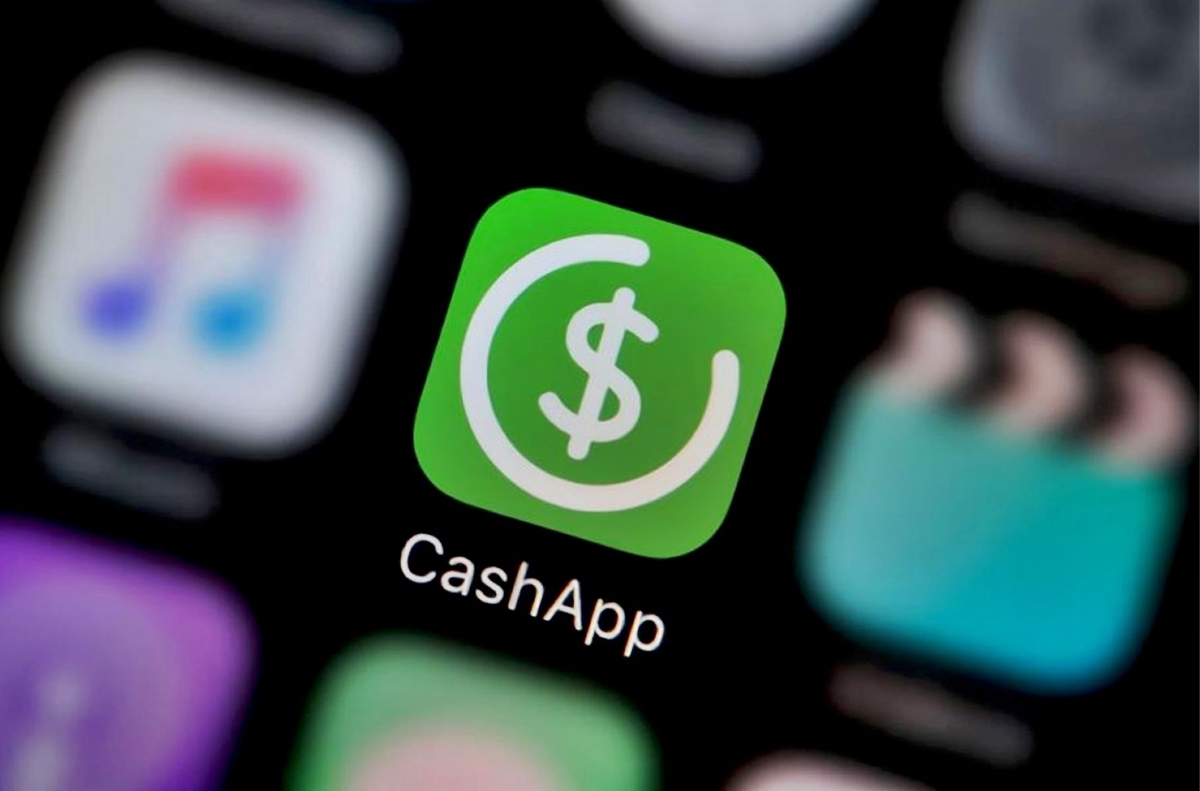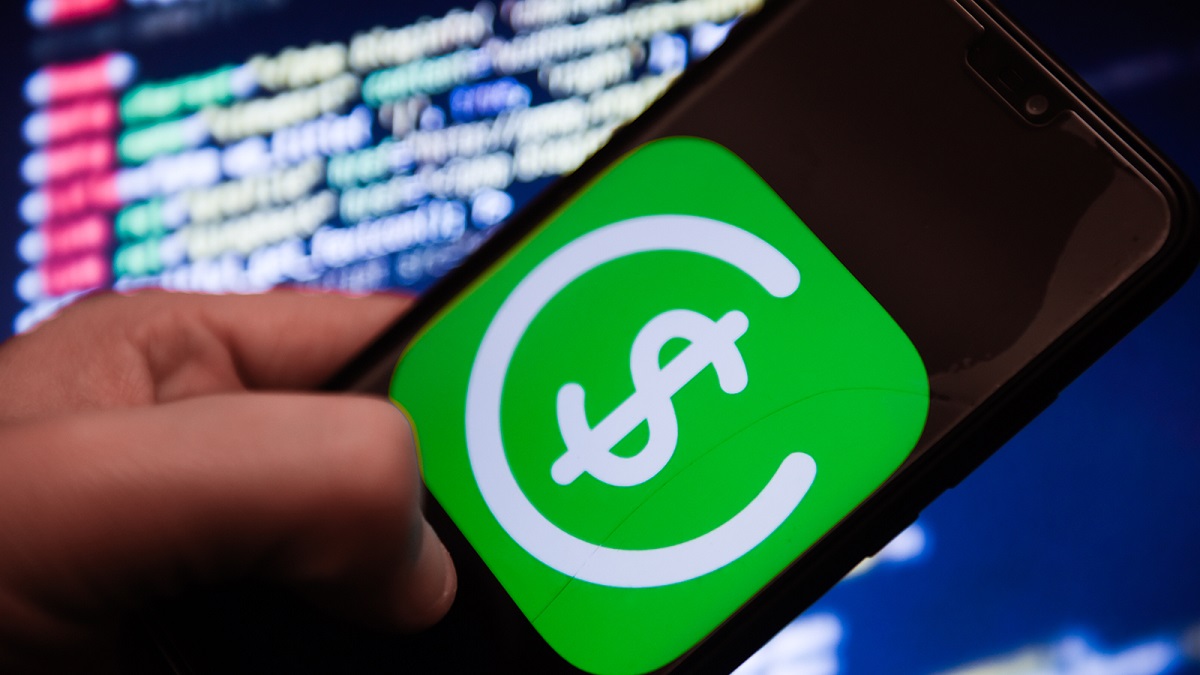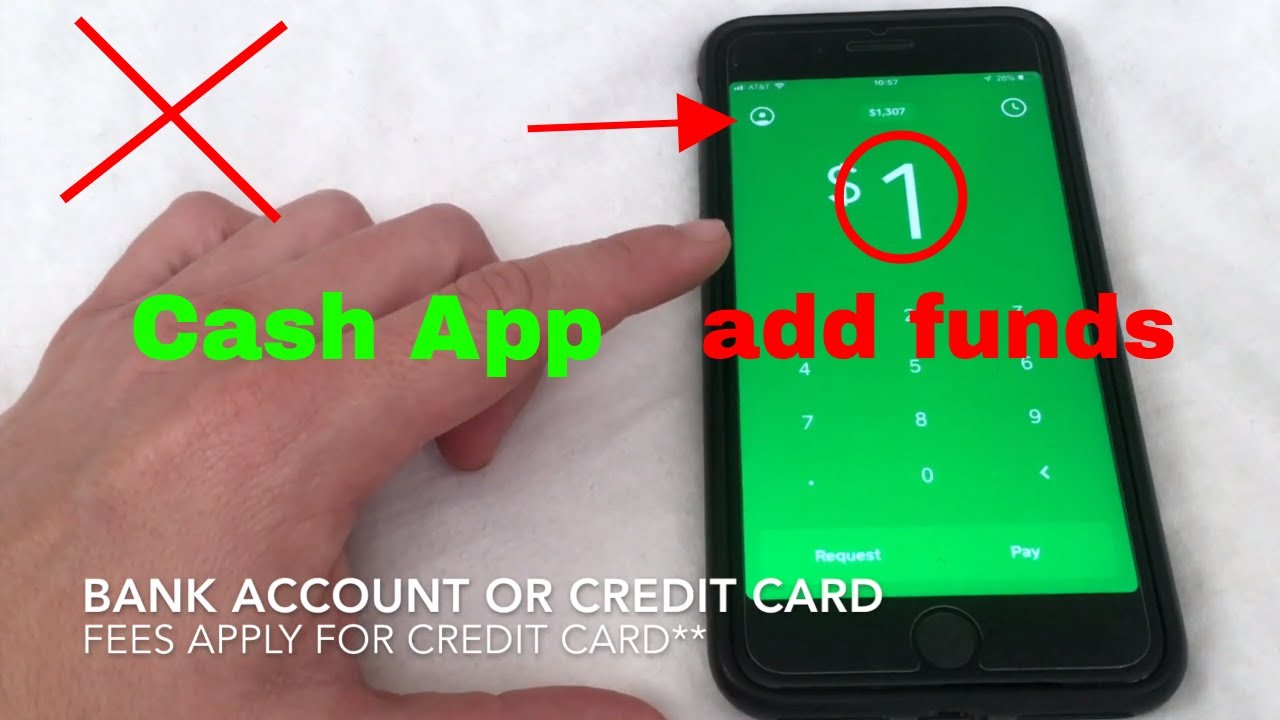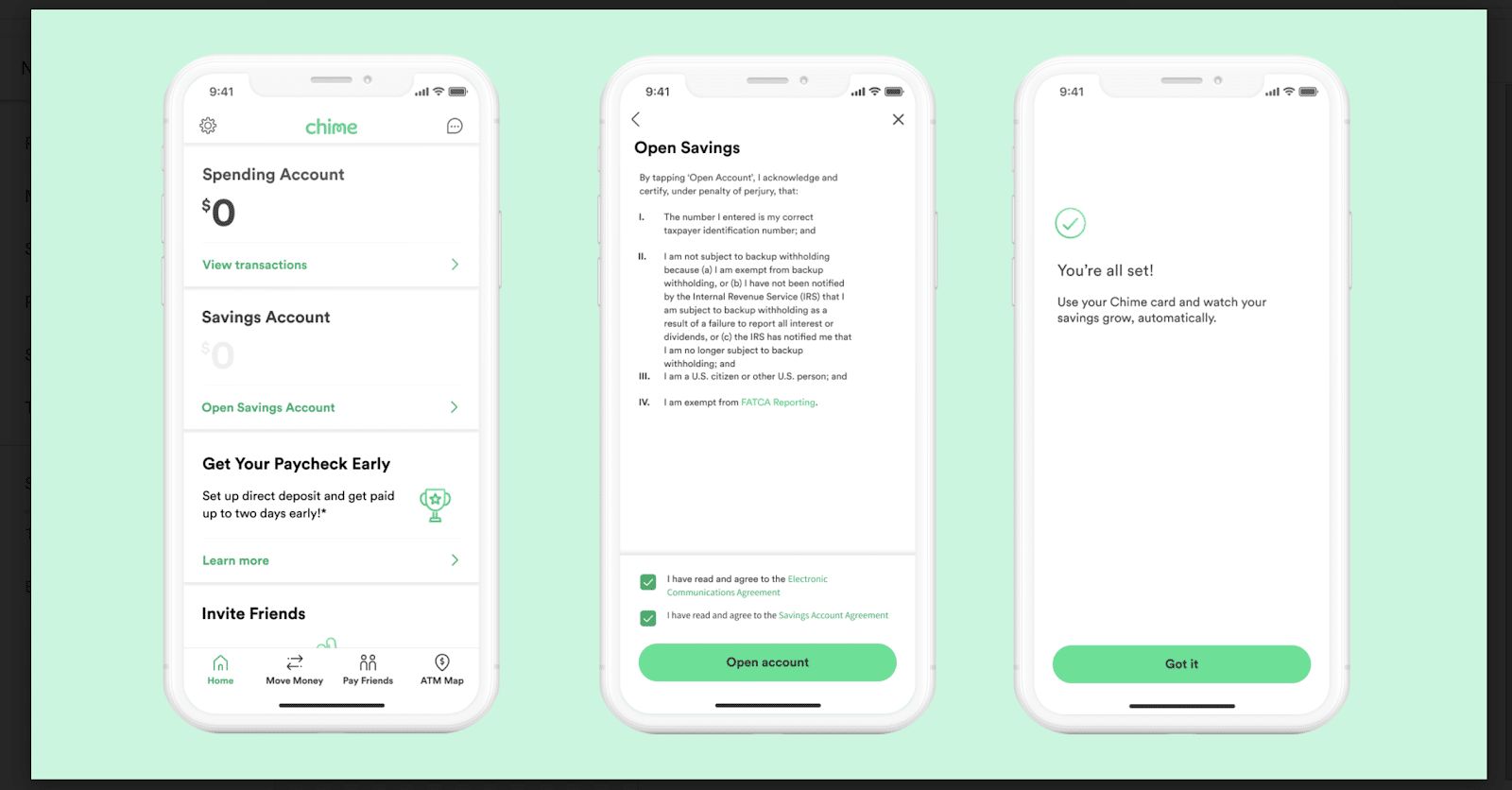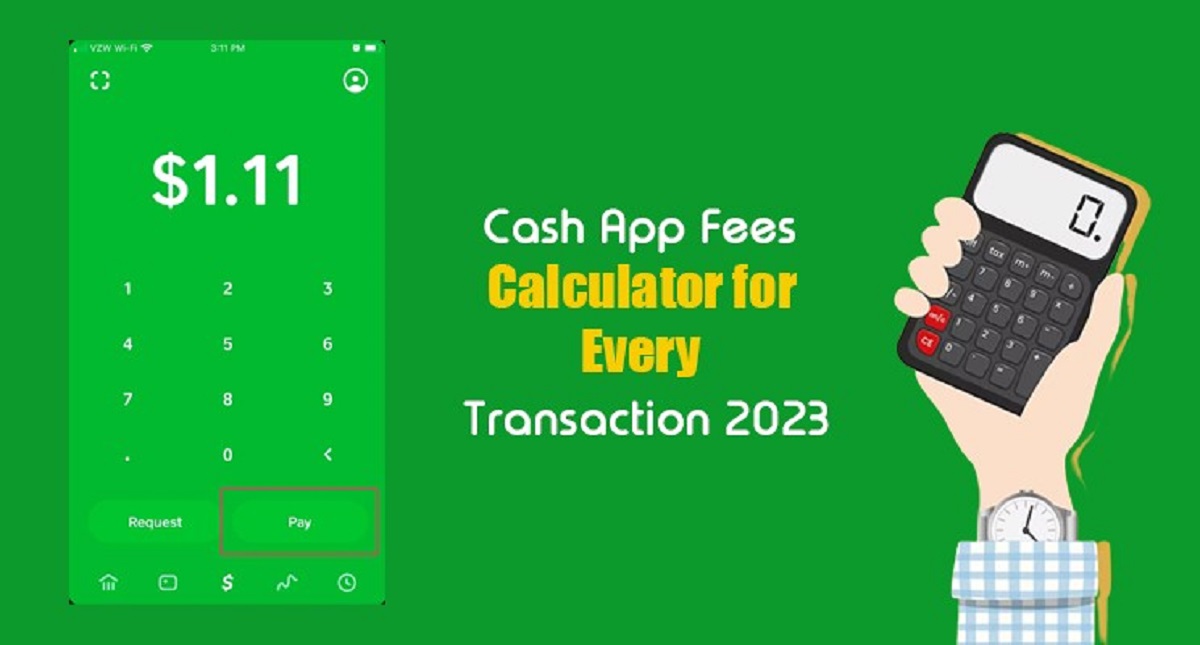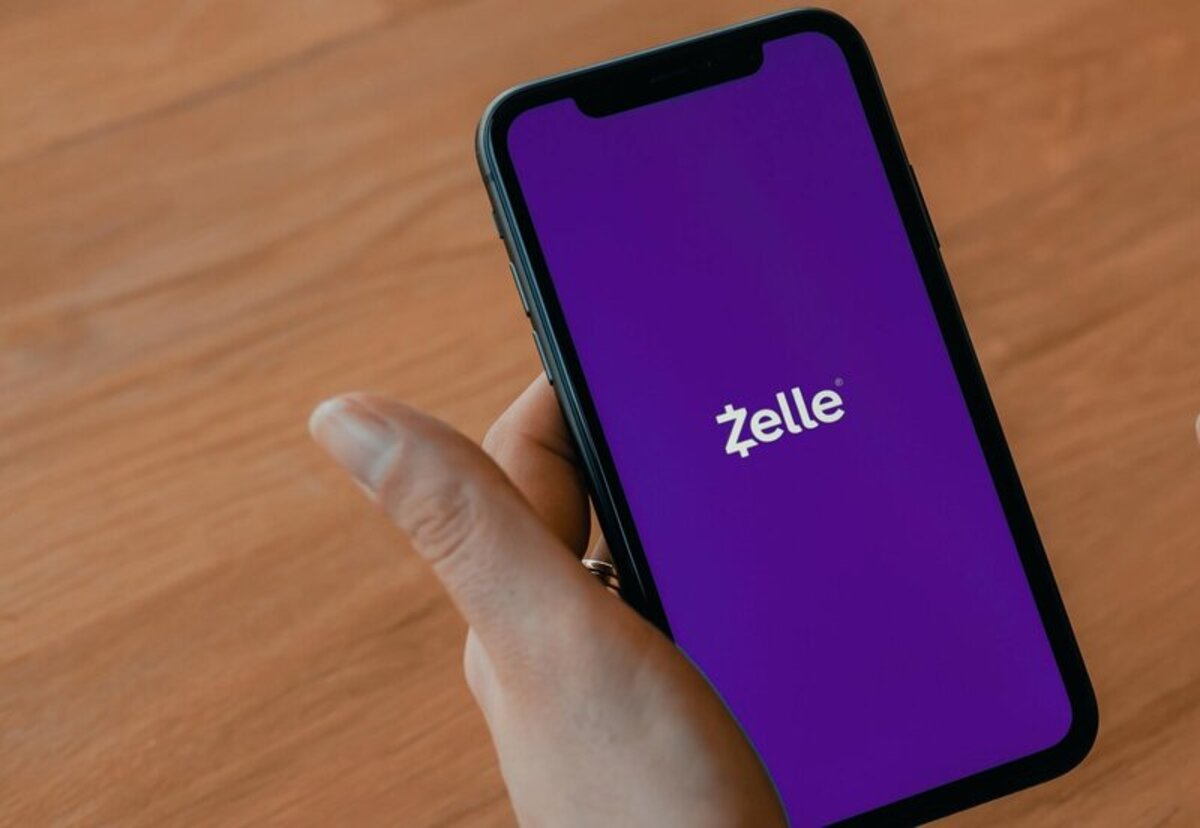What is Cash App?
Cash App is a popular peer-to-peer mobile payment service developed by Square Inc. It allows users to easily send, receive, and transfer money from their mobile devices, making it a convenient alternative to traditional banking methods. With Cash App, individuals can connect their bank accounts or debit cards to the app and instantly send money to friends, family, or businesses.
One of the standout features of Cash App is its user-friendly interface. The intuitive design and straightforward functionality make it easy for anyone, regardless of their technical expertise, to navigate the app and carry out transactions seamlessly. Whether you’re splitting a bill with friends, paying your share of the rent, or reimbursing someone for concert tickets, Cash App simplifies the process and eliminates the need for cash or checks.
In addition to basic peer-to-peer transactions, Cash App offers added options such as requesting money from others, investing in stocks and Bitcoin, and even utilizing its Cash Card, a customizable Visa debit card linked directly to your Cash App balance.
How does Cash App work?
Cash App operates on a simple and user-friendly platform, allowing individuals to send, receive, and manage their money with ease. Here’s a breakdown of how Cash App works:
- Download and Sign Up: To get started, users can download the Cash App from the App Store or Google Play Store. After installing the app, they need to sign up for an account using their email address or mobile number.
- Connect your Bank Account or Debit Card: Once the account is created, users can link their bank account or debit card to Cash App. This enables them to send and receive money directly from their bank account or use their debit card for transactions.
- Send and Receive Money: To send money, users simply enter the recipient’s $Cashtag (a unique username for each user) or their mobile number or email address, and enter the desired amount. To receive money, users can provide their $Cashtag or share their unique QR code, which the sender can scan using their Cash App.
- Investing and Cash Card: Cash App also allows users to buy stocks and Bitcoin, providing an easy entry point for those interested in investing. Additionally, users can order a Cash Card, which is a personalized debit card linked to their Cash App account. The Cash Card can be used for in-store and online purchases, and even offers boosts and discounts at select merchants.
- Security and Privacy: Cash App takes the security and privacy of its users seriously. It incorporates features like fingerprint and Face ID authentication, as well as two-factor authentication for added protection. The app also provides the option to enable a PIN for transactions and allows users to customize their privacy settings.
Overall, Cash App’s intuitive user interface and seamless functionality make it a popular choice among individuals looking for a fast and convenient way to manage their money.
Understanding Cash App fees
While Cash App offers a convenient and user-friendly platform for sending and receiving money, it’s important to understand the fees associated with using the service. Here are some key aspects to consider when it comes to Cash App fees:
1. Sending Money: Cash App allows users to send money to others for free if the funds are coming from their Cash App balance or linked bank account. However, if the user chooses to send money using a credit card, a fee of 3% of the transaction amount will be applied.
2. Receiving Money: Cash App does not typically charge a fee for receiving money. However, there are exceptions when it comes to certain types of transactions or using specific features, which we will delve into further in the following sections.
3. Cash App Cash Out: Cash App provides an option called “Cash Out” that allows users to transfer their funds instantly to their linked bank account. While there is no fee for standard transfers, if users opt for an instant transfer, a fee of 1.5% of the transaction amount is levied. This fee ensures that users can access their money right away, rather than waiting for the standard processing time.
4. Cash App Bitcoin Transactions: Cash App allows users to buy and sell Bitcoin within the app. When conducting Bitcoin transactions, Cash App incorporates fees into the exchange rate. These fees are based on market fluctuations and can vary.
5. Additional Fees: It’s important to note that Cash App may charge fees for various additional services, such as getting a physical Cash Card or using the Cash App boosts and discounts feature. It’s recommended to review Cash App’s terms of service or contact their customer support for detailed information on any additional fees.
Understanding the fees associated with Cash App transactions is crucial for users to make informed decisions. By being aware of these fees, individuals can proactively manage their finances and choose the most cost-effective methods for sending, receiving, and managing their money through Cash App.
Why does Cash App charge a fee for receiving money?
While Cash App generally does not charge a fee for receiving money, there are certain instances where fees may be applicable. Let’s explore the reasons why Cash App might charge a fee for receiving money:
1. Instant Transfers: One of the primary reasons Cash App may charge a fee for receiving money is if the user chooses to receive an instant transfer. Instant transfers provide the convenience of immediate access to funds, bypassing the standard processing time. However, this convenience comes at a cost, and Cash App applies a fee of 1.5% of the transaction amount for instant transfers to ensure fast and efficient service.
2. Network and Processing Fees: When it comes to certain types of transactions, such as receiving payments from businesses or other financial institutions, Cash App may incur network and processing fees. These fees are imposed by the financial institutions involved in the transaction and are subsequently passed along to the user. Cash App, as a mobile payment service, aims to offer a seamless and convenient experience, and these fees help cover the costs associated with facilitating such transactions.
3. Security and Fraud Prevention: Cash App prioritizes the security and protection of its users’ funds. To maintain robust security measures and implement effective fraud prevention strategies, Cash App invests in advanced technologies, verification processes, and constant monitoring. These investments incur costs, which may be reflected in the fees charged for certain types of transactions, including receiving money.
4. Additional Features and Benefits: Cash App offers various additional features and benefits, such as investing in stocks and Bitcoin, as well as customizable Cash Cards. These features provide added convenience and opportunities for users. However, the maintenance and administration of these features require resources and may contribute to the fees associated with receiving money in certain instances.
While it is understandable that users may prefer to avoid fees when receiving money, it’s important to recognize that these fees play a role in sustaining and improving the services provided by Cash App. By ensuring a reliable and secure platform, Cash App can continue to offer its users a convenient way to send, receive, and manage their money effectively.
The cost of instant transfers
Cash App’s instant transfer feature allows users to access their funds immediately, providing convenience and flexibility. However, it’s important to understand that there is a cost associated with this speedy service. Let’s explore further details about the cost of instant transfers on Cash App:
1. Fee Structure: When opting for an instant transfer on Cash App, a fee of 1.5% of the transaction amount is applied. This means that if you’re receiving $100, you will be charged a fee of $1.50. The fee is deducted from the total amount received, so you’ll receive a reduced net amount in your Cash App balance.
2. Instant Access: The primary advantage of instant transfers is the ability to access your funds immediately. This can be particularly useful when you need to pay for time-sensitive expenses or require immediate access to funds for any reason. Instead of waiting for the standard processing time, which can take a few business days, an instant transfer allows you to receive the money in your Cash App balance instantly.
3. Convenience: Instant transfers offer convenience by eliminating the waiting period associated with standard transactions. This makes Cash App a viable option for users who require quick and efficient fund transfers. Whether you need to split a bill, reimburse someone, or access funds for an urgent expense, instant transfers provide a convenient solution.
4. Balancing Speed and Cost: It’s important to consider that while instant transfers offer speed and immediate access to funds, the associated cost should be taken into account. Users should assess their individual needs and determine if the convenience of instant transfers justifies the additional fee. For some, the speed and convenience may outweigh the cost, while others may opt for the standard transfer method to avoid paying the fee.
While the cost of instant transfers on Cash App may deter some users, it’s important to recognize that it comes with the advantage of instantaneous access to funds. Whether the convenience of immediate availability justifies the fee is a personal decision that depends on individual circumstances and preferences.
The role of network and processing fees
Network and processing fees play a significant role in digital payment services like Cash App, contributing to the overall cost of transactions. Let’s explore the importance and implications of network and processing fees:
1. Intermediary Institutions: When you send or receive money through Cash App, the transaction typically involves multiple financial institutions. These institutions act as intermediaries, facilitating the transfer of funds between sender and recipient. Each of these institutions incurs costs for processing the transaction, which are reflected in network and processing fees.
2. Ensuring Transaction Security: Network and processing fees contribute to the security of transactions by enabling robust verification systems and encryption protocols. These measures ensure that the funds are transferred securely, minimizing the risk of unauthorized access or fraud. The fees associated with network and processing services help maintain and enhance the security infrastructure of Cash App.
3. Service Reliability and Infrastructure: Cash App operates on a network of servers, databases, and data centers that require ongoing maintenance and infrastructure updates. Network and processing fees help cover the operational costs of sustaining a reliable and efficient service. These fees ensure that Cash App remains accessible and functional for users, allowing them to send and receive money without disruption.
4. Facilitating Cross-Border Transactions: For international transactions, additional complexities and fees may arise due to currency conversions, compliance regulations, and cross-border transfers. Network and processing fees help cover the costs associated with these intricacies, ensuring seamless cross-border transactions for Cash App users.
5. Partnerships and Integration: Cash App collaborates with various financial institutions, payment processors, and networks to provide its services. These partnerships incur costs that are passed on to users in the form of network and processing fees. These fees allow Cash App to leverage the integration of these systems, enabling smooth and secure transactions.
While network and processing fees contribute to the overall cost of using Cash App, they are essential for ensuring the security, reliability, and compliance of the service. By understanding and acknowledging the role of these fees, users can make informed decisions and appreciate the value that these fees bring to maintaining a seamless and efficient digital payment experience.
Security measures and fraud prevention
Cash App prioritizes the security and protection of its users’ funds, employing various measures to safeguard their transactions and personal information. Here’s an overview of the security measures and fraud prevention tactics implemented by Cash App:
1. Authentication: Cash App incorporates robust methods of user authentication to ensure only authorized individuals have access to their accounts. This includes options such as fingerprint and Face ID recognition, as well as the use of a unique PIN for additional transaction verification.
2. Encryption: Cash App employs advanced encryption techniques to secure data transmission and protect sensitive information. This ensures that personal and financial data exchanged between users and the app’s servers remain confidential and inaccessible to unauthorized parties.
3. Two-Factor Authentication (2FA): To provide an extra layer of security, Cash App offers two-factor authentication. This feature requires users to enter a unique verification code sent to their registered mobile device or email address, in addition to their login credentials, before accessing their accounts or authorizing transactions.
4. Advanced Fraud Detection: Cash App utilizes sophisticated fraud detection algorithms and machine learning technologies to identify and prevent fraudulent activities. By analyzing transaction patterns and user behavior, Cash App can detect and stop suspicious transactions, protecting users from potential fraud attempts.
5. Customer Support and Reporting: Cash App provides a dedicated customer support team that users can contact in case of any concerns or suspected fraudulent activities. Users are encouraged to report any suspicious transactions or activities promptly, allowing Cash App to investigate and take necessary actions to protect affected accounts.
6. Secure Network Infrastructure: Cash App employs secure network infrastructure and data centers to protect user information and ensure the integrity of transactions. This includes regular security audits, vulnerability testing, and compliance with industry-standard security protocols.
7. Education and Awareness: Cash App takes an active role in educating its users about common scams and fraud tactics. Through blog posts, in-app notifications, and support articles, Cash App provides information and guidance to help users identify and avoid potential threats.
By implementing these security measures and fraud prevention strategies, Cash App aims to create a safe and trustworthy environment for users to carry out their financial transactions. However, it’s important for users to also exercise caution and practice secure digital habits to further protect their personal and financial information.
Exploring alternative payment options
While Cash App offers convenience and ease of use, it’s always beneficial to explore alternative payment options to suit individual preferences and needs. Here are a few alternative payment methods that you may consider:
1. PayPal: PayPal is one of the most well-known and widely used online payment platforms. It allows users to send and receive money, make online purchases, and even provides options for business transactions.
2. Venmo: Venmo, owned by PayPal, is a popular peer-to-peer payment service that focuses on social sharing and easy splitting of bills among friends and family. It offers a simple interface and enables users to send and receive money easily.
3. Zelle: Zelle is a digital payment network that allows users to send money directly from their bank accounts to other users. It offers real-time transfers and is often integrated into banking apps and online platforms.
4. Google Pay: Google Pay is a mobile payment system that enables users to make payments using their smartphones. It allows for easy online purchases, in-store payments, and peer-to-peer transactions.
5. Apple Pay: Apple Pay is a mobile payment and digital wallet service offered by Apple. It allows users to make payments using their iPhones, Apple Watches, or iPads at participating merchants, in-app purchases, and person-to-person transfers.
6. Cryptocurrencies: Cryptocurrencies, such as Bitcoin and Ethereum, offer decentralized and secure payment options. They can be used for online transactions and peer-to-peer transfers, providing an alternative for those interested in digital currencies.
7. Traditional Bank Transfers: Traditional bank transfers, also known as wire transfers, remain a reliable option for sending and receiving money. While they may have longer processing times and potential fees, they offer a secure and regulated method for transactions.
It’s important to note that each payment method has its own set of features, advantages, and potential costs. Considering factors such as convenience, security, fees, and the preferences of the parties involved can help determine the most suitable alternative payment option.
Ultimately, exploring alternative payment options allows users to broaden their choices and find the method that best aligns with their needs and priorities. Whether it’s a peer-to-peer payment app or a traditional bank transfer, understanding the pros and cons of different solutions can help find the ideal fit for managing personal finances.
Tips to minimize Cash App fees
While using Cash App can be convenient, it’s helpful to know some tips and strategies to minimize fees associated with the service. Here are some recommendations to help you keep your Cash App expenses under control:
1. Use Your Cash App Balance: When sending money through Cash App, try to use funds from your Cash App balance or linked bank account rather than a credit card. By avoiding credit card payments, you can avoid the 3% fee that Cash App charges for credit card transactions.
2. Opt for Standard Transfers: If you don’t need immediate access to the funds you’re receiving, consider using standard transfers instead of instant transfers. While instant transfers provide instant availability, they come with a fee of 1.5% of the transaction amount. By choosing standard transfers, you can avoid this additional cost.
3. Be Mindful of Bitcoin Transactions: If you’re using Cash App for Bitcoin transactions, keep in mind that the exchange rates within Cash App include fees. It’s a good practice to compare these rates with other cryptocurrency exchanges to ensure you’re getting the best deal and minimizing any additional fees.
4. Utilize Cash App Boosts: Cash App Boosts offer various discounts and rewards at select merchants when you make purchases using your Cash Card. Taking advantage of these boosts can save you money on everyday expenses and reduce the overall cost of using Cash App.
5. Explore Fee-Free Alternatives: Consider exploring alternative payment methods, such as peer-to-peer payment platforms or traditional bank transfers, that may offer lower or no fees depending on your needs. Researching and comparing different payment options can help you identify the most cost-effective solution for your specific transactions.
6. Review Terms and Conditions: Stay informed about the fees associated with using Cash App by regularly reviewing the terms and conditions provided by Cash App. This way, you can stay up to date with any changes and ensure you have a clear understanding of the fees charged for different transactions.
7. Monitor Your Account Regularly: Keep a close eye on your Cash App transactions to identify any unexpected fees or suspicious charges. Monitoring your account can help you catch any potential issues early on and resolve them promptly.
By implementing these tips, you can minimize fees and optimize your usage of Cash App. Remember to assess your transaction needs and preferences to make informed decisions that align with your financial goals.
Conclusion
Cash App offers a user-friendly and convenient platform for sending, receiving, and managing money through a mobile device. While there are fees associated with certain transactions, understanding and navigating these fees can help users make informed decisions about their financial transactions.
By familiarizing yourself with Cash App’s fee structure, you can minimize costs by using your Cash App balance or linked bank account for transactions. Opting for standard transfers instead of instant transfers and taking advantage of Cash App Boosts can also help reduce fees. Additionally, exploring alternative payment options and staying informed about changing fees can provide opportunities for cost savings.
It’s important to recognize that the fees charged by Cash App are necessary to cover operational costs, support instant transfers, maintain security measures, and provide continuous service. By understanding the value that these fees bring, users can appreciate the convenience and security that Cash App offers.
As with any financial service, it’s essential to exercise caution, monitor your account regularly, and report any suspicious activities to Cash App’s customer support. By following best practices and staying informed, you can make the most of Cash App while minimizing risks and maximizing convenience.
Ultimately, Cash App provides a modern and efficient way to send, receive, and manage money. By understanding its features, fees, and security measures, users can make informed choices and use Cash App as a valuable tool to simplify their financial transactions.







